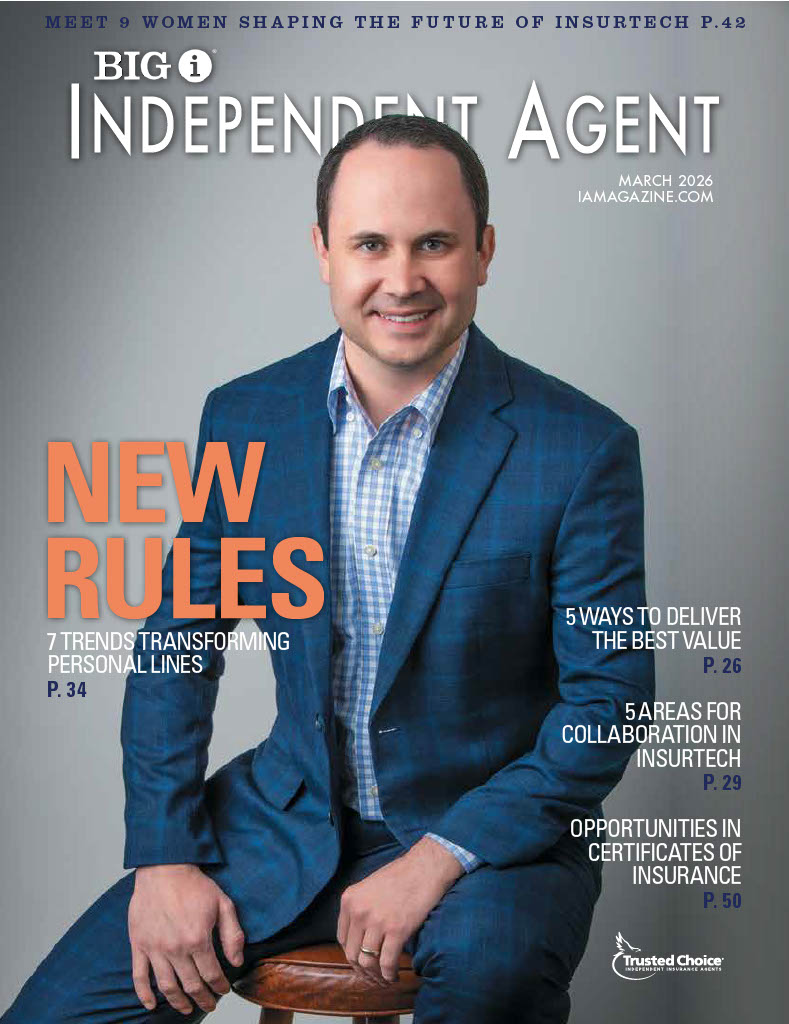Sales Tip: Leverage the Power of Scripting

By: Susan Toussaint
“I can’t wait to spend time making calls to my prospects,” said no producer ever.
Conducting business development activities is rarely a default behavior for producers. It’s important, but it often only happens when it becomes painfully obvious that the sales pipeline is empty.
A more efficient and effective business development effort is leveraging the power of scripting. Scripting removes the pressure many producers feel when trying to engage prospects and can also improve sales performance by helping convey complex concepts in a concise, articulate manner.
It takes a little practice, but by following these steps, you’ll find scripting both saves time and makes you more effective.
Step 1: Develop Key Themes
Coming up with something new and insightful to capture the attention of your prospects rarely comes easy. Instead of thinking of specific angles, start by thinking in terms of themes.
Themes enable you to organize your thoughts and content and help bring variety to your messaging. Start with a blank piece of paper and divide it into four sections. Then, think about the types of conversations you have most often with prospects and clients and write one on each square.
Here are a few examples of potential themes:
- Compliance
- Risk financing
- Adverse risk events
- Flaws in buying insurance and managing risk
Step 2: Develop Message Titles for Each Theme
The next step is to develop topics that fit within the themes you want to discuss with your prospects. Make sure the topics provide plenty of substance and opportunity for engagement.
Once you decide on the topics, write a 500- to 1,500-word article about each one. The articles should be thought-provoking, but free of solutions. If there’s more to say, consider doing a series of pieces.
Based on the themes in Step 1, here are a few examples of potential articles:
- Compliance
- Is Your Business at Risk for Fines, Penalties and Litigation?
- How Confident are You that Your Injured Employees Won’t Lose Their Group Health Benefits?
- Part 1 of 2: Are You a Prudent Fiduciary?
- Part 2 of 2 Are You a Prudent Fiduciary?
- Risk financing
- The Pros and Cons of Captives
- Are You Making the Most Efficient Use of Your Insurance Dollars?
- Is Your Risk Profile Helping or Hurting You?
- Hidden Fees Every Employer Must Know About
- Adverse risk events
- Is Your Medical Provider Helping or Hurting Your Goal of Shortened Disability?
- Selecting the Right Fit Medical Provider for Your Injured Employees
- A Majority of Work Comp Audits are Incorrect—Is Yours?
- Are You at Risk for Not Being Able to Bid on Jobs?
- Flaws in buying insurance and managing risk
- Why Bidding and Quoting Your Insurance Puts Your Business at Risk
- Is Your Insurance Buying Process Letting the Dumb Guy Win?
- What Workers Comp Underwriters Really Think of Your Business
- Why 90 Days Before Your Insurance Renews is the Worst Time to Select an Agent
Step 3: Create Email and Voicemail Scripts
After writing the articles, you can leverage the content to create email and voicemail scripts. Because you’ve written the article, you know the three or four key points you want to make your prospect aware of and can use them concisely in your scripts.
Agents often ask which should come first—the phone call or the email. The truth is, it doesn’t matter. The key is to make multiple touches and follow the simple but effective call-email-call or email-call-email formula. Either way, you’ll be doing more than most of your competitors.
Not enough producers are using voicemail effectively. When your prospects don’t take your call, you get 15-30 seconds of uninterrupted time to leave a compelling message. Don’t waste the opportunity!
Using the audit topic under the adverse risks event, here is a brief email template for a prospect audit message 60 days after renewal:
Subject line: There is a good chance your work comp audit is incorrect
[Prospect],
Based on my research, it’s likely your business recently had a workers compensation audit.
Would you be surprised to learn that the vast majority of workers comp audits are incorrect, causing overcharges to businesses?
Even if you weren’t billed any additional premium as a result of the audit, it is possible you could still be overcharged for your workers comp insurance.
There are three reasons why this happens:
- The audit process is complex and designed for speed, not accuracy.
- Most business owners lack a process to effectively prepare for a workers comp audit.
- Most agents don’t understand the rules and classification system.
In addition, incorrect classifications could have an adverse impact on your experience mod. Depending on your client’s requirements, a high mod may negatively impact your ability to bid on work.
If you want to be absolutely sure that your business is not being overcharged, I’d welcome the opportunity to speak with you.
My agency is committed to helping business owners identify and address overcharges as well as reduce the number, cost and duration of employee injuries. Let’s talk.
I will call you on [Date] at [time] to see if you are interested in learning more. Or, if you prefer, please feel free to call me at XXX-XXX-XXXX.
Sincerely,
[Name]
[Contact information]
Note that the message is brief and the subject line is thought-provoking. The bullet points are a great way to draw the reader’s eye to the key themes of the message.
You can also use the bullet points as content for your voicemail. Here is a sample:
Hi, John—this is Susan with the OP Agency. The purpose of my call is to follow up on my email of Feb. 1 on the challenges with the work comp audit process. I suspect you’ve recently had yours, and I wanted to see if you’re interested in making sure it was correct.
As I mentioned in my email, the audit process is built for speed, not accuracy, and most business owners—and most agents—lack an effective process for properly preparing for an audit. If this interests you, let’s set up a call to discuss. Again, this is Susan with OP Agency. You can reach me at XXX-XXX-XXXX. I look forward to speaking with you soon.
When I timed this message, it was 31 seconds long. It was easy to deliver because it was scripted—I knew what I was going to say. That preparation comes across in your tone, making you sound confident and comfortable.
Business development is never easy, but with a little planning and advance scripting, you can decrease your anxiety and increase your productivity.
Susan Toussaint, partner and co-founder of Oceanus Partners, provides agents and brokers with strategies that help them more effectively pique the curiosity of business owners and decision-makers and lead them away from the flawed process of bidding and quoting insurance, toward a more effective client engagement strategy.










